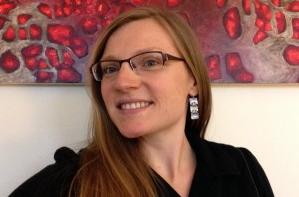by Julie Watson, former Head Editor, INALJ Pennsylvania
Soft Skills = Success: Self-Awareness
This is the second in a series of articles on soft skills.
 Employers are looking for soft skills in their in prospective employees and having these skills often makes the difference between who can do a job and who gets a job. Since soft skills are usually not taught in the classroom, we all must work to develop them on our own. Self-awareness (you may recall from part one of this series) is the foundation of all the soft skills and the perfect place to begin. By developing self-awareness, you will be able to effectively guide your own behaviors and take control of your life.
Employers are looking for soft skills in their in prospective employees and having these skills often makes the difference between who can do a job and who gets a job. Since soft skills are usually not taught in the classroom, we all must work to develop them on our own. Self-awareness (you may recall from part one of this series) is the foundation of all the soft skills and the perfect place to begin. By developing self-awareness, you will be able to effectively guide your own behaviors and take control of your life.
Self-awareness is knowing and accepting the various aspects of yourself, including your strengths and weaknesses, thoughts, beliefs, motivations, and emotions. Author of Emotional Intelligence 2.0 Travis Bradberry says that “self-awareness is not about discovering deep, dark secrets or unconscious motivations, but, rather, it comes from developing a straightforward and honest understanding of what makes you tick. People high in self-awareness are remarkably clear in their understanding of what they do well, what motivates and satisfies them, and which people and situations push their buttons.”[1]
The Consortium for Research on Emotional Intelligence in Organizations developed a framework for understanding self-awareness. They break it down into three competencies: emotional awareness, accurate self-assessment, and self-confidence. [2] You should work on these one at a time, and in order.
Emotional awareness is the ability to recognize your emotions and their effects. Sometimes you really don’t realize when you are stressed, anxious, or even happy. In order to know how you’re feeling, practice being present. Being present is stopping to ask yourself in the moment:
✔ How am I feeling right now? Am I happy, sad, angry, stressed, frustrated, relaxed, excited, anxious…? (Remember that feelings are complex, so you might feel more than one emotion simultaneously: loving AND irritated…joyful AND worried. )
✔ Why I am I feeling this way? Did something or someone trigger me?
✔ How is my current emotional state affecting how I am thinking and/or what I am saying and doing? Is my irritation making me critical of my co-workers? Is my happiness making me want to help others? Is my nervousness making me think of all the things that could go wrong?
✔ How is this emotional state affecting my performance? Do I forget tasks when I am stressed? Am I more productive when I am relaxed?
✔ How do my feelings affect my ability to live according to my values and achieve my goals? (This is a tough question!)
Self-assessment is the ability to evaluate your strengths, weaknesses, and limits. In order to evaluate yourself, you must be open to candid feedback and continuous learning and self-development. You should be open to new perspectives. Self-assessment can happen in the moment (you can think, “Hey, I’m good at this!” or, “Oh, I’ve reached my limit of that!), but it’s best done when you set aside a time and place for self-reflection. While reflecting is often a solitary exercise, the more extroverted among us often gain insight when talking to a friend or mentor. Many times those close to us know us better than ourselves and asking them for insights can be quite illuminating. Both styles of reflection are equally useful and everyone should practice both. The payoff is perspective and ability to laugh at yourself, which is quite liberating!
Self-confidence is a by-product of emotional awareness and accurate self-reflection. Many people project a false confidence that enables them to get certain things done, but this has its limits. True self-confidence reveals itself as sureness of self-worth and capabilities. Self-confident people have the power to try new things, accept challenges, and voice unpopular/unique views. They are decisive despite uncertainties and pressures. Self-confidence comes naturally when you are aware of the impact of your emotional landscape and own your strengths and weaknesses. For example, confidence allows you to say, “I’m sorry, but I’m not an expert in that, perhaps you should ask someone else’s advice.”
Hopefully you can see how even within the foundation of self-awareness, the three competencies build on each other. Once you have this solid foundation, it will be easy to master the rest of the soft skills. In the next post I’ll discuss how you can demonstrate your soft skills in your resume and cover letter. In the meantime, check out these great resources on self-awareness:
[1] Dr. Susan Albers. “Emotional Intelligence 2.0: Learning the Art of Self-Awareness.” Accessed 11 March 2013. http://www.huffingtonpost.com/dr-susan-albers/emotional-intelligence_b_1377591.html
[2] The Consortium for Research on Emotional Intelligence in Organizations. “Emotional Competence Framework.” Accessed 11 March 2013. http://www.eiconsortium.org/reports/emotional_competence_framework.html
Developing Emotional Awareness – Jeanne Segal, Ph.D., Melinda Smith, M.A., and Lawrence Robinson
Self-awareness, Emotional awareness, Self-Assessment, and Personal Power (self-confidence) – Susan Carstens, certified professional coach
formerly published on 3/21/13